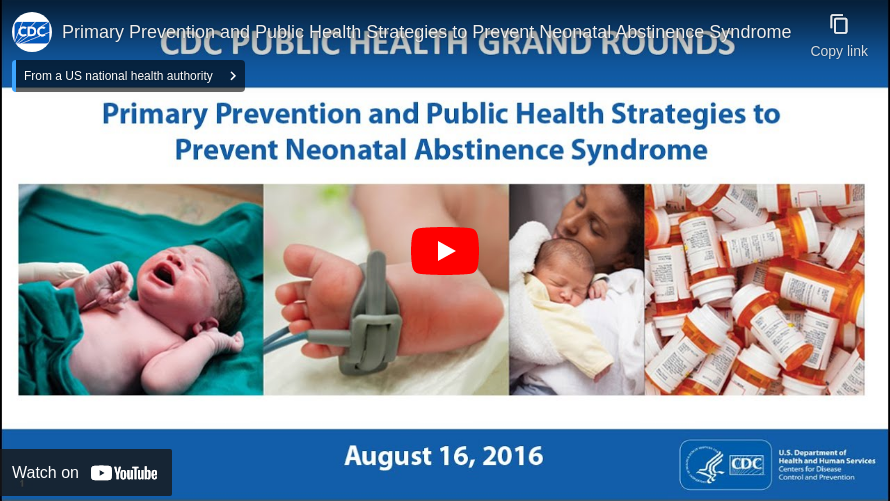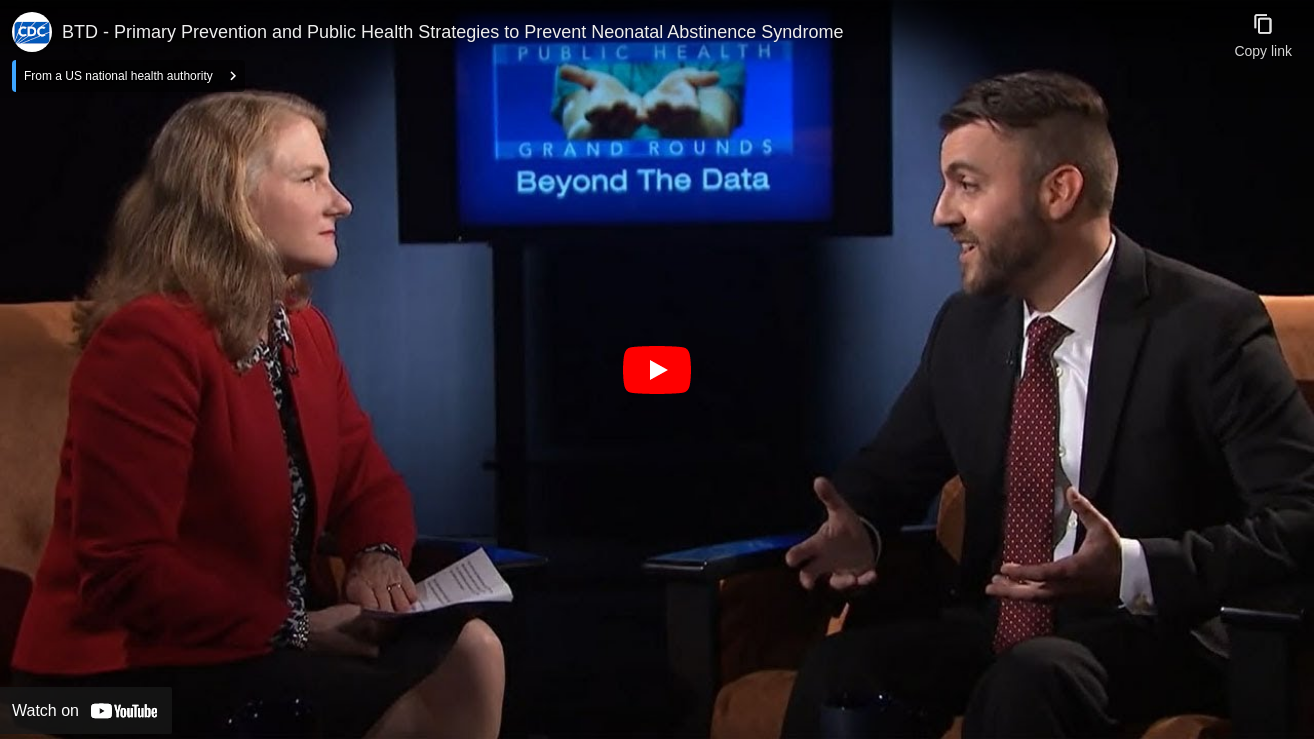Primary Prevention and Public Health Strategies to Prevent Neonatal Abstinence Syndrome
Presented on .
Neonatal Abstinence Syndrome (NAS) is a growing problem in the United States. NAS occurs when newborn babies experience withdrawal after being exposed to drugs in the womb. NAS can cause low birth weight and other complications leading to prolonged hospitalization. NAS can occur with a variety of both illicit and prescription drugs, including some prescription painkillers. The rates of NAS increased 5 times between the year 2000 and the year 2013. As of 2012, there was an average of one infant born with NAS every 25 minutes in the United States, accounting for an estimated $1.5 billion in healthcare spending that year alone.
Fortunately, NAS is preventable if an expectant mother receives proper care and treatment. One of the most effective prevention strategies is to improve preconception health care, and to educate both patients and providers about appropriate use of prescription drugs during pregnancy. Though there have been some recent initiatives to reduce rates of opioid use, few have included a focus on pregnant women and their babies. Screening of pregnant women can also be an effective prevention strategy by determining who may need additional care or treatment for opioid use.
In this session of Public Health Grand Rounds, you will hear how CDC is working with state and local partners to develop better policies for opioid prescribing among pregnant women. You will also hear how providers and patients can work together to prevent NAS by learning more about the choices that they make.
Dr. Phoebe Thorpe and Dr. Wanda Barfield discuss the serious and growing problem of Neonatal Abstinence Syndrome (NAS).
In this session of Beyond the Data, Dr. Phoebe Thorpe and Dr. Stephen Patrick discuss the causes of neonatal abstinence syndrome, and how health care providers and policymakers are working to address this growing problem.
- USA Today — Study: Opioid epidemic increasingly reaching newborn babies
- US News & World Report — America's Opioid Epidemic Is Increasingly Harming Babies
- HealthDay — Steep Rise in U.S. Babies Born to Opioid-Addicted Mothers
- StatNews — US babies born addicted to opioids has tripled in 15 years, CDC says
- Beacon Transcript — The Opioid Epidemic Affects Newborns, Too
- CAPT Wanda D Barfield, MD, MPH, FAAP
- Director, Division of Reproductive Health
National Center for Chronic Disease Prevention and Health Promotion, CDC
- Cheryl S Broussard, hD
- Health Scientist, Birth Defects Branch
Division of Congenital and Developmental Disorders
National Center on Birth Defects and Developmental Disabilities, CDC
- Kimberly A Yonkers, MD
- Director, Center for Wellbeing of Women and Mothers
Professor, Deparments of Psychiatry, Epidemiology, Obstetrics, Gynecology, and Reproductive Sciences
Yale University School of Medicine
- Stephen W Patrick, MD, MPH, MS
- Assistant Professor, Pediatrics and Health Policy, Division of Neonatology
Vanderbilt University School of Medicine
- John Iskander, MD, MPH
- Scientific Director
- Phoebe Thorpe, MD, MPH
- Deputy Scientific Director
- Susan Laird, MSN, RN
- Communications Director
Get notified about the latest updates from Public Health Grand Rounds right in your inbox by setting up an alert today!
Get notified about the latest updates from Public Health Grand Rounds right in your inbox by setting up an alert today!Sign Up
Get notified about the latest updates from Public Health Grand Rounds right in your inbox by setting up an alert today!
This session is available for Continuing Education (CE). Register here using the course information below.
CDC Course Code: PHGR10
CPE UAN: 0387-0000-16-106-H04-P
For more information, see Grand Rounds Continuing Education.

Deaths from drug overdoses are the number one cause of injury death in the US. Most of these deaths are related to the misuse of prescription opioids and heroin. Women’s deaths from opioid overdose are increasing substantially. Learn about care and prevention approaches and the federal response to this disorder.

Neural tube defects are serious birth defects and a major cause of death and lifelong disability worldwide. Up to 85 percent of neural tube defects can be prevented if women consume enough folic acid before and during early pregnancy. Find out how fortifying grains with folic acid could prevent these defects.



